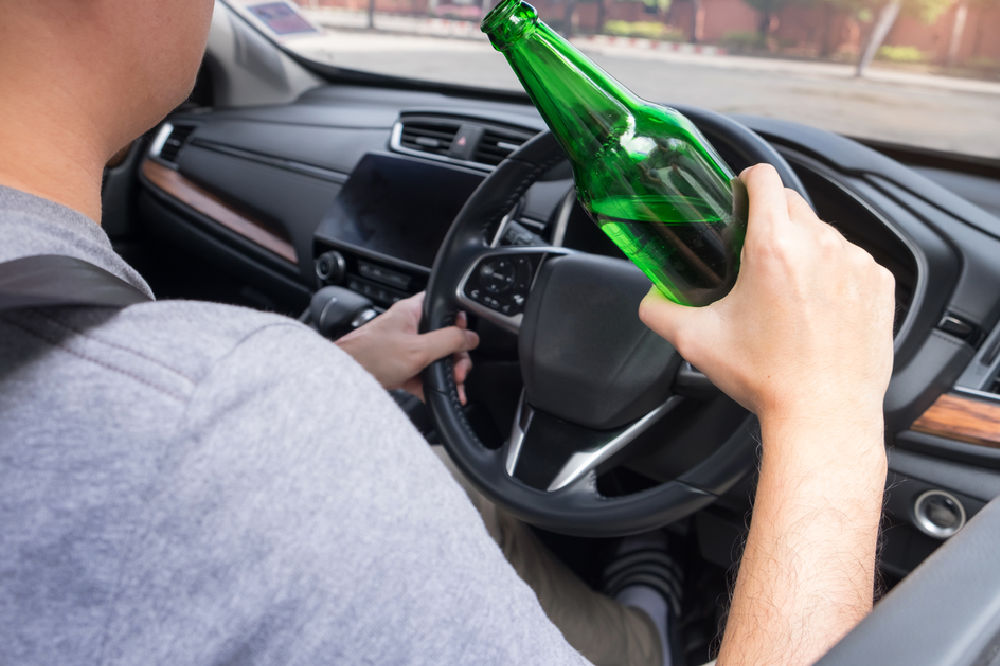The majority of Indiana drivers are aware that operating a vehicle while intoxicated is both illegal and highly dangerous. Despite this common knowledge, there are still around 4,500 annual collisions in Indiana that involve a drunk driver, causing around 1,700 injuries and almost a hundred fatalities every year.
Indiana has a strict open container law that was implemented to prevent drinking and driving.
In this legal blog, we answer common questions regarding Indiana’s open container law including penalties, exceptions, and having an open container as a vehicle passenger.
What Does the Open Container Law Mean Exactly?
An open container law refers to any law that prohibits individuals from having an unsealed alcoholic beverage. There is no federal open container law, so the specific restrictions and penalties differ from state to state.
In fact, some states don’t even have conventional open container laws including Alaska, Arkansas, Connecticut, Delaware, Louisiana, Mississippi, Missouri, Tennessee, Virginia, West Virginia, and Wyoming. But it’s still illegal to drive while under the influence of alcohol in these states.
What Is the Open Container Law in Indiana?
In Indiana, it’s completely illegal to have an open alcoholic beverage inside a moving vehicle. This applies if the beverage is open, if it has a broken seal, or if some of the beverage’s contents have already been removed from the container. For example, if you travel with a re-corked bottle of wine that isn’t full, that’s still considered driving with an open container.
The open container law applies when a vehicle is in motion or is located on a public road, meaning that you can have an open alcoholic beverage in a parked car, and you can even consume alcohol in a parked car. That said, a police officer can arrest you if they have evidence that you operated your vehicle while drinking.
Additionally, there are restrictions when walking in public with an open container. If a person has an alcoholic beverage in a public area, it must be in its original container. For example, you can carry an open beer bottle but can’t carry a Solo cup full of beer.
One important note is that although there’s no state law preventing you from carrying an alcoholic beverage, there are cities and towns within the state that prohibit the practice, so check local laws before carrying a beverage in public.
Are Vehicle Passengers Allowed to Have an Open Container?
Passengers are allowed to be under the influence of alcohol in a moving car, but they are prohibited from having an open container in their possession.
When Is It Legal to Have an Open Container in Indiana?
There are some situations where a person can have an open container within a vehicle. These include:
- Paid Transportation: A person can have an open alcoholic beverage if they’re located in the passenger section of a vehicle designed to transport customers, such as a taxi, limousine, Uber, or Lyft.
- Fixed Compartment: A driver can have an open container if they keep it within a fixed compartment, such as a trunk or center console.
- Mobile Home: RVs and mobile homes can have open containers as long as it’s within the living area and not up front with the driver.
- Restaurant Wine Exception: If someone purchased a bottle of wine within a restaurant and didn’t finish it, they can legally transport it as long as the restaurant packages it within a sealed container that reveals any tampering.
What Is the Penalty for Having an Open Container in Indiana?
If a driver or passenger has an open container in their possession, they can be found guilty of committing a Class C infraction, which carries a penalty of up to a $500 fine.
Can You Be Arrested for an Open Container?
Carrying an open container while at the wheel does not necessarily mean that the police will arrest you, but if you drive over the legal blood alcohol limit or consume alcohol while operating a vehicle, you can face jail time.
Those who drink an alcoholic beverage while at the wheel can face a Class B infraction, which could carry a fine of $1,000, up to 180 days in jail, and six points against the offender’s driving record.
Additionally, you could be charged with a DUI if your blood alcohol level is above .08%. If you’re caught driving with a blood alcohol level between .08% and .14% and it’s your first offense, you could face a Class C infraction that comes with up to a $500 fine, 60 days in jail, eight points against your license, and a 180-day license suspension. If your blood alcohol level was above .15%, you can face up to a year in jail and a fine of $5,000.
With every following DUI offense, you can expect your license to be suspended for at least a year.
Injured By a Drunk Driver? Contact a Personal Injury Attorney Today
Driving while under the influence of alcohol greatly increases the likelihood of a driver causing a traffic accident, and any number of these alcohol-related accidents can lead to serious or even fatal personal injuries.
If you were injured by a drunk driver, you need to file a claim or lawsuit to recover compensation for property damages, medical bills, pain and suffering, and more.
For seasoned legal support in Indiana drunk driving accidents, contact the personal injury attorneys at Crossen Law Firm. We’ll help you prove that the other driver is liable for your damage, and we’ll work to get you the most money possible for your medical bills, property damage, lost wages, and pain and suffering. Call us today at 317-401-8626, or you can contact us online here.

 317-401-8626
317-401-8626 
.jpg)